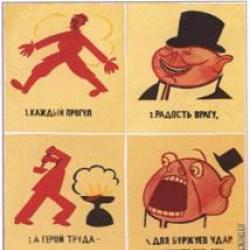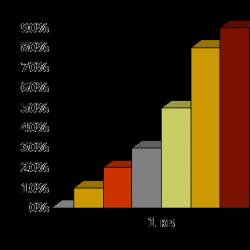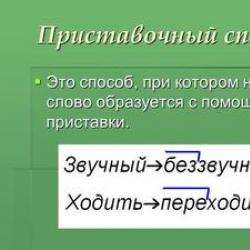What does bachelor's level of education mean? What is a bachelor's degree? Is a bachelor's degree a higher education or not? What is the difference between a bachelor and a master?
What are the levels of higher education (bachelor's and master's degrees)?
Dear applicants!
Since 2011, two-level higher professional education has been introduced in the Russian Federation:
The first level is bachelor's degree.
The standard period for full-time study to obtain a bachelor's degree is four years.
The second level is master's degree.
The standard period for full-time study to obtain a master's degree is two years on the basis of a bachelor's degree.
A specialty with a training period of at least 5 years will be retained only in some specialties, the list of which is approved by the Government of the Russian Federation.
What is the innovation?
The innovation is due to the fact that in 2003 Russia joined the Bologna process, aimed at forming a single European educational space. The goal of the Bologna Process is to expand access to higher education, further improve the quality and attractiveness of European higher education, increase the mobility of students and teachers, and ensure the successful employment of university graduates by ensuring that all academic degrees and other qualifications should be labor market oriented. Russia's accession to the Bologna process gives a new impetus to the modernization of higher professional education, opens up additional opportunities for the participation of Russian universities in European projects, and for students and teachers of higher educational institutions in academic exchanges with universities in European countries.
What are the benefits of a bachelor's degree?
At present, when technologies and knowledge are updated very quickly, it is inappropriate to train “narrow” specialists within the walls of a university, starting from the first year, for five to six years. Therefore, the introduction of a broad bachelor's program followed by specialization in a master's degree or manufacturing will be more in line with the rapidly changing labor market. Such a system will become more flexible and will be the basis for the formation of a structure of qualifications and educational programs that meets the needs of society. Considering that a young man enters a Russian university at the age of 17, he does not always consciously choose the educational path for his future profession. Leveled higher professional education allows, in the first years of study in a broad area, to more consciously choose a program profile, which is usually implemented in senior undergraduate courses. And after completing the first level, having a diploma of higher professional education, you can once again coordinate your life plans with possible changes in the labor market. This is possible both by continuing education in a master's program, and using a wide range of additional professional education programs with qualifications.
What is a bachelor's degree?
A bachelor's degree is a full-fledged higher education at the level of world standards.
Those students who are studying for a bachelor's degree will receive the most ordinary higher education, just in a different way, in a shorter period of time. Moreover, within the framework of a bachelor's degree, as a rule, training in certain training profiles is assumed. A profile is a system of organizing education that provides in-depth study of specialized disciplines and creates conditions for learning in accordance with professional interests and intentions regarding further employment and continuing education.
Choosing a profile is an important personal decision, which will provide an opportunity, after studying general professional disciplines, to study special profile disciplines, which will allow you to develop skills and abilities, as well as demonstrate abilities in understanding further professional activities, from the elementary level to the most complex.
After studying all the required courses in the chosen field and passing the final state certification, the graduate will be awarded a bachelor's degree and issued a state bachelor's diploma.
Bachelor's degree
The bachelor's diploma form contains a typographical entry - “the diploma is a document of higher education.”
For example, a bachelor's diploma will read:
- for bachelors of economics: Awarded a bachelor's degree in Economics.
- for bachelors of management: Awarded a bachelor's degree in the direction of "Management".
Employment opportunities and further education for bachelors
- Having completed a bachelor's degree, the graduate will receive general fundamental and specialized practical training sufficient to perform professional tasks.
- wider employment opportunities appear, which are achieved by the absence of narrow specialization, this allows you to occupy positions whose qualification requirements require higher education.
- The bachelor's degree (qualification) is generally accepted in the international classification and understandable to employers all over the world; with a bachelor's degree, it becomes possible to get a job abroad.
- For those students who have a strong zeal for learning, and four years of study seem insufficient, after graduating from a bachelor’s degree, they can enroll in a master’s program, where they can receive the highest academic degree - a master’s degree.
Education in modern society is an inseparable right of every person. Boys and girls graduate from school, deciding on their future profession. Whatever it is, it is necessary to understand the features of modern universities. Since 2011, most of them have switched to a stepped education system. And now applicants and their parents are concerned with the question: is a bachelor’s degree a higher education or not? And what is his difference from the already rare specialist and the recently emerged master?
The essence of higher education reform
Russia joined the so-called Bologna process in 2003. This gave impetus to further modernization of the system of higher professional education towards bringing it closer to European standards. This also made it possible to begin the transition to new rules and requirements in student education. In 2011, a new state educational standard for higher education was adopted. The Bachelor has now become the main qualification for graduates. Since that time, the specialist as an academic degree has ceased to exist for almost all educational areas. The only exceptions were doctors and some engineering specialties.

Nevertheless, applicants and their parents continue to doubt: is a bachelor’s degree a higher education or not? This feature of teaching contradicts the Soviet school with its simpler and more understandable approach. However, the time has come to change habits and fit into European and international education standards.
The essence of a bachelor's degree is that it is a stepped higher education. For the first two years, students study general subjects, then narrow specialization begins. Studies end with a state exam and the award of a bachelor's degree. After this, the graduate receives a diploma of completed higher education. He can continue his studies in a master's program, which provides a greater theoretical and scientific basis, or he can begin professional activities.
Is a bachelor's degree a complete higher education or not?
For a long time, there was an opinion among ordinary citizens and employers that a bachelor’s degree is a step between secondary specialized and higher education. Thus, students studying in these areas were disoriented and doubted their future relevance in the labor market.

Currently, the question of whether a bachelor’s degree is a complete higher education or not is no longer worthwhile. Specialists were abolished in 2011, and in 2015, universities graduated the first mass intake of students studying under the new system. And most of them found worthy use of the acquired knowledge. According to regulations, higher education is considered incomplete when the student has been at the university for half the allotted time. Previously, for specialists this period was two and a half years. Now for a bachelor it is exactly two years. But after studying for four years, they receive a diploma of completed higher education and can either enroll in a master’s program or go to work.
Higher education: bachelor, specialist, master. What is the difference?
In addition to doubts about whether a bachelor’s degree is higher, applicants are concerned about one more question. Namely: how do the new names of qualifications differ from each other? What is a master's degree and what are its advantages? Where is the specialty left and how to apply for it?

The main differences in terms of training and level of training:
- Bachelor's degree is the first stage of professional higher education, according to the Bologna process. The duration of training is four years.
- Master's degree is the second stage of higher education and involves a deeper theoretical approach and further scientific activity. The training period lasts two years, after which a person defends a dissertation.
- The specialty has been preserved only for a small number of professions that do not involve a change in activity. The duration of training is five years.
Bachelor's degree advantage
Despite the constantly arising question whether a bachelor’s degree is a higher education or not, its great advantages should be highlighted:
- The stepped form of education allows young people to more effectively respond to the demands of the labor market and choose a specialization in the learning process.
- The opportunity to receive actually two educations for free - a bachelor's and a master's.
- The opportunity to interrupt your studies for several years, and then continue it at any university not only in the country, but also in the world.
- Possibility of transfer to any university in the world that trains students in a similar program.
- Chance to find a job in Europe.
Bachelor's degree
Upon completion of training, students prepare for and pass a state exam and defend their final qualifying thesis. This was the case with specialists, and now bachelors do the same. All four years of study they actually prepare for the final certification.

Upon completion of training, graduates receive a document of higher education - a diploma, which contains the entry: “awarded bachelor's degree” followed by the name of the specialty. Of course, this is a sign of completed and full-fledged higher education and confirms sufficient qualifications to engage in professional activities. A graduate can confidently apply for a decent job. And the question of whether a bachelor’s degree is a higher education or not should no longer worry either applicants or employers.
Options for further bachelor's education
Despite the fact that a bachelor's degree in Russia is a full-fledged and complete higher education, many students are concerned about the possibility of further education. How to get an additional profession, advanced training or scientific degree?
The most obvious prospect for further study for a bachelor's degree is a master's degree. This is the second stage of education. At this stage, students study their chosen field in depth and receive a diploma.

The advantage of such two-stage training is that the scientific and applied specialty can be changed. After all, this often happens: in the process of studying, other interests may arise and the chosen specialty begins to be of little interest. A master's degree will come to the rescue.
Job prospects
Another exciting question is what to do with future work? Where should a bachelor go to work after defending his diploma? Is it necessary to complete a master's degree? And how will employers react to a young specialist?
Practice shows that employers value in employees, first of all, the ability to perform assigned duties efficiently. In addition, dedication and understanding of the company's strategy are valued. All this is absolutely accessible to a bachelor’s graduate. Don't be afraid to keep up with the times. Get a forward-looking and relevant education. If the need arises, complete your master's degree. Your career will only benefit from this.
Over the past 15 years, the winds of change have swept away many stable concepts in Russian spaces. Soviet higher education, so good and understandable, has gradually faded away and now a new system is being built with difficulty. We are gradually getting used to the new names: bachelor's and master's degrees.
A little history
For Russian students it all started in 1996. A two-level training system was introduced at universities. The purpose of the innovation was to join the Bologna process - a voluntary unification of higher education systems in European countries, which by that time had been about two decades old.
The process of joining European standards was formalized legally in 2003, when Russia signed the Bologna Declaration. And since the beginning of 2011, the two-level system has become the main one in Russian higher education.
In fairness, it must be said that students who entered before 2010 still have the opportunity to obtain a “certified specialist” degree. This is an intermediate level between bachelor and master. But today the system of climbing a granite rock of science is as follows:
- Bachelor;
- Master.
What is the difference between Bachelor and Master
These two words, so unusual for our ears, mean the degree of preparation of a university graduate. To understand the difference between a bachelor and a master, you need to know the goals of training at these two levels.
Bachelor's degree - preparation of a practicing specialist
After graduating from school, young people enter a bachelor's degree program. This is the beginning of higher education. After studying for 2 years, each of them can receive an incomplete higher education diploma. That is, a diploma is issued stating that you have completed half of the first stage of higher professional education, the volume and content of which is indicated in the appendix to this diploma.
But almost no one stops there. By continuing your studies for 2 more training courses and passing the final certification, you will receive a bachelor's degree. By this time, you have completed not only general education sciences, but also special disciplines and professional practice. This diploma is a certificate of full and completed higher professional education. You have the right to apply for positions whose qualification requirements include the need to have a higher education.
Master's degree - focus on scientific work
If you want to further conquer scientific heights or engage in teaching at universities, you need to enroll in a master's program. A master's degree is required for students who wish or have the opportunity to further engage in scientific activities or teach at a university.
But today, according to statistics, those wishing to study further after 4 years of study at the university are approximately 25-30% of the total number of students. The explanation should be sought in the realities of our lives. Not every student can afford to continue their studies.
The downside is that they prefer to hire bachelors - for office work you don’t need more. A person must be able to work with information, process documents, and work in a team. In short, be a competent and efficient employee of the company. And special scientific activities are not required here. This is why most students prefer to spend 4 courses to gain basic knowledge, some practical experience and then get serious about their career.
There are a few other things that keep you from enrolling in a master’s program:
- The need to retake exams upon admission. Even at your home university, you again find yourself as an applicant and on a par with applicants from other universities.
- It is even more difficult to enroll in a free master's program than in the first stage. About one third of those who apply pass the test. But for those who are eager to enroll, there is paid training.
- It can be considered a fact that the starting salary of masters is higher than that of bachelors. This is especially confirmed by foreign studies (for example, in the USA and Canada). You can see more details in another material: statistics of salaries of masters and bachelors.
Pros and cons of two-level training
The new system of university education levels has not yet taken root in the vastness of the former USSR and causes many difficulties in understanding. It is sometimes difficult for personnel officers to determine the level of preparedness of a newly minted specialist. Moreover, both of them write “higher education” when filling out the questionnaire. The older generation perceives a first-level graduate more likely as a “dropout.” In addition, there are areas where a bachelor's degree is clearly not a winning point: law, economics, high technology. The first stage is sometimes equated to a technical school (according to old-school personnel officers).
But there are also advantages. Large companies will hire a first-level graduate more quickly. Especially those structures that have their own personnel training system. After all, it is easier to teach than to re-teach. And it is much easier to finish training a person who has mastered the practice of teaching at a university - training for 4 years gives the skills to be ready to learn.
And he has a greater focus on practice than a master’s degree. Indeed, during the continuation of studies in the master's program, an orientation is created more towards scientific and theoretical activities than towards practical ones.
If a student dreams of engaging in scientific activities, promoting scientific and technological progress in laboratories, or subsequently teaching students, he cannot do without a master’s degree.
But before enrolling to continue your studies, you need to find out if your university has a license to issue masters and its validity period. It is not advisable for your license to expire in the year you complete your master's degree. Everything happens in life…
Hello, friends. Those of you who graduated from a higher educational institution during the Soviet years can hardly imagine what difficulties current graduates have to face. Or, at least, he is re-learning this system, going through a difficult path with his grown-up child. Upon completion of his studies, he received a specialist diploma and a guaranteed job, where he was obliged to work for at least three years and there would be no problems in this regard.
Before and now: what has changed in education
However, since 2011, the higher education system in the Russian Federation has changed radically. According to the new law, it became two-level. And modern graduates, unless, of course, they are preparing to become doctors or military officers, have to choose: to become only bachelors or to also receive a master’s degree.
As we said, medical workers, military personnel and representatives of a number of engineering specialties were not affected by these changes. They still receive a specialist degree while only completing one level of training. However, the trend today is that a number of universities that have retained the specialty are gradually moving away from it, joining the two-level education system. As an example, a number of MAI specialties.
And the usual system was replaced by bachelor's and master's degrees, bringing with them a lot of questions. The main ones are what education to choose, whether it is a bachelor’s degree or not, who will be more willing to be hired after completing the first and second stages, and a number of others. And despite the fact that more than 7 years have passed since the introduction of the new system, a number of questions remain.
If you look around and look around, it’s easy to notice that even in your company people with different education levels work side by side. Those who work, for example, are those who graduated from universities and technical schools in Soviet times, and today’s bachelor’s graduates, who sometimes manage to get a job
to work even while studying at the university, and some have no education at all, but regularly receive their salary.
Employment: who is preferred?
However, changes are already noticeable. For example, imagine a situation where in a local government body, in other words, in the local administration, a position for a head has become vacant in one of the departments. There are two applicants. Both have proven themselves to be excellent, competent, qualified, and responsible. Only one with a bachelor's degree and the other with a master's degree. Who will they take? The answer is obvious: the second.
The fact is that persons applying for positions in the state and municipal service are already subject to special requirements. And if you can become just an employee of a department with your bachelor’s education, then you can no longer become a boss.
To be fair, let’s say that so far such a clear distinction between bachelor and master exists, perhaps, only in the case we described above. In general, bachelors have a high chance of getting a job. If you look at vacancies, many companies have two main requirements for applicants: a higher education diploma and work experience - without dividing into existing levels of education.
Diploma received. Should I worry?
Then let’s take a closer look at the concept of a bachelor’s degree, find out how it differs from a master’s degree, and at the same time debunk the myth that some people have that a bachelor’s degree is an incomplete higher education. As for the latter, we assure you: by receiving a bachelor's degree, you at the same time receive a real higher education.
Unfinished education also existed during the Soviet era; it was considered the education received by a student in half the full term of study. At that time, students studied at institutes and universities for 5 years, so an incomplete education could be obtained in 2.5 years. Today, to obtain a bachelor's degree, you need to study for 4 years. Accordingly, your education will be considered incomplete after two years of study.
Working in Europe: dreams and reality
If we look at the history of the issue of the emergence of two levels of education in the Russian Federation, we will see: it was connected with Russia’s accession to the Bologna Convention. This document made it possible to create a single zone of European education. Participation in the project allows Russian students to apply for jobs in Europe with a bachelor's or master's degree.
Again, without lying, we note that getting a job in Europe with a first-level education is theoretically possible, but practically difficult. For example, according to some studies of the labor market in Germany, only 6% of applicants with a bachelor's degree were accepted for work here.
But again, how to get a master's degree without a first level? This is simply impossible, so the debate about the need for a bachelor's degree should be put aside. Having received your specialty, you can either immediately get a job, or immediately go to a master’s program, or relax, look around and enroll in it later if you wish.
If you want more, move on
According to the two-level system, when studying for a bachelor's degree, students receive basic specialties in their chosen profession. Among banking institutions, in the service sector and a number of others, such specialists are in great demand. Basic knowledge gives an understanding of the profession, and workers are taught more specific things on the spot. The experience, as they say, has never been canceled.
If a person has a desire to acquire deeper scientific knowledge in a specific specialty, or to engage in scientific or teaching work in the future, then he will not be able to do without a master’s degree. By the way, after a bachelor’s degree you do not have to enroll in a master’s program strictly in the specialty you received. Your aspirations may change, and a two-tier education can help.

Since 2011, the higher education system in the Russian Federation has followed the European path of development. Some people don’t really like this, many regret that the good Soviet education system has collapsed and bachelor’s degree programs had to be cut. Some are glad that now graduates of Russian universities can confidently present a diploma of education in Europe, without fear that it will be unrecognized.
But no matter how we feel about these changes, we must take the current system into account. Each graduate chooses what and where he wants to get an education and where to get a job later. One thing is certain: a bachelor's degree is proof of your higher education! And then it’s up to you to decide which path to take. Good luck to you on your chosen path!
We hope that if anyone is still thinking about choosing an educational institution and level of education, our article will answer their questions. We will be glad to hear your opinion about the article and the issues raised in it. Visit our website, leave comments on social networks.
The Presidential Academy (RANEPA) offers applicants 22 areas of undergraduate higher education programs and 5 areas of specialty study. In total, RANEPA operates about 80 educational programs and profiles in basic socio-economic and humanitarian disciplines.
What is a bachelor's degree
Bachelor's degree is the basic level of higher education accepted in Russia and abroad. Bachelor's degree programs usually last 4 years. A bachelor's degree does not imply a narrow specialization, but guarantees general fundamental training in a wide field of knowledge in the chosen field. Upon completion of training, the graduate is issued a diploma of higher education with a bachelor's degree.
After receiving a bachelor's degree, the graduate can continue his studies at, and after graduation, enter the.
A bachelor's degree from a Russian state university is recognized by both Russian and foreign educational institutions and employers.
Along with the new levels of higher education (bachelor's and master's degrees), there is a traditional type - a specialty, the program of which provides for a five-year study. Upon completion of the specialty educational program, the graduate is issued a diploma of higher education and is awarded the qualification (degree) of “specialist”.
Advantages of bachelor's programs at RANEPA
- A diploma of higher education from one of the most prestigious state universities in Russia.
- Study at the Presidential Academy, the only university in Russia with presidential status.
- RANEPA is the largest socio-economic and humanitarian university in Europe, whose educational programs and technologies are highly valued in Russia and abroad.
- Education at the Presidential Academy is carried out in close connection with practical Russian and international experience.
- The Academy has partnerships with leading international universities and regularly organizes programs, seminars and master classes with the participation of world-famous foreign professors.
Bachelor's programs at RANEPA
- Business Informatics
- State and municipal administration
- Design
- Journalism
- Foreign Regional Studies
- Arts and Humanities
- Story
- International relationships
- Management
- Political science
- Applied Informatics
- Psychology
- Public Policy and Social Sciences
- Regional studies of Russia
- Advertising and Public Relations
- Service
- Sociology
- Trading business
- Quality control
- Personnel Management
- Economy
- Jurisprudence
The Academy also has 5 specialty programs:
- Legal support of national security
- Psychology of performance
- Judicial and prosecutorial activities
- Customs
- Economic security
Contacts of the RANEPA admissions committee
Address: Moscow, Vernadsky Avenue, 84, building 6.
+7 499 956-99-99
(Bachelor's and Specialist's degrees)
Opening hours: 10.00 - 17.00
Admissions Committee of the Institute of Economics, Mathematics and Information Technologies:
Opening hours: 10.00 - 17.00
Phone: +7 499 956-90-07; +7 499 956-90-08; +7 499 956-90-09.
Email: This email address is being protected from spambots. You must have JavaScript enabled to view it.
Acceptance of documents to the Academy for undergraduate and specialist programs is carried out separately by two admissions committees: the admissions committee of the Academy and the admissions committee of the EMIT Institute.
Acceptance of documents for undergraduate programs (on contract) and master's programs of the Institute of Finance and Sustainable Development (IFSD) is carried out at the address: Moscow, Signalny proezd, D.23A.
Acceptance of documents for undergraduate programs in the field of study 03/38/05 Business Informatics (on contract), for master's programs in the field of study 04/38/05 Business Informatics of the Faculty of Information Technologies and Data Analysis of the Institute of Economics, Mathematics and Information Technologies (FITAD EMIT) is carried out according to address: Moscow, st. Sadovniki, D.4, building 2.






